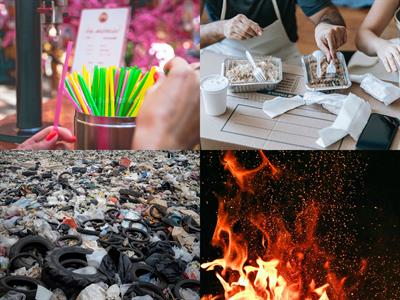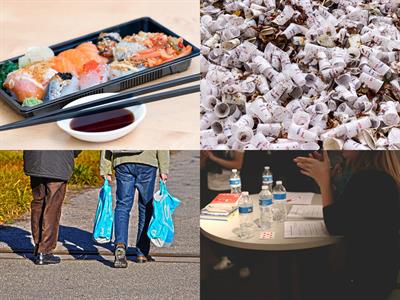PDF chapter test TRY NOW
Students' roles in plastic pollution prevention:
Students play a vital role and have the ability to reduce plastic pollution.
- Ask yourself, is this plastic safe or toxic? If it is not a hazardous plastic type, is it single-use plastic?
- These questions and the science-based knowledge will assist you in reducing unnecessary plastic pollution.
What can you do to stop plastic pollution?
1. You may educate your parents, relatives, and friends on plastic pollution by sharing your scientific knowledge on plastics and their impacts.
2. You can help by educating them on identifying and avoiding dangerous plastics by using resin codes.
3. You can teach them about the new rules and how necessary it is to stop single-use plastics.
In your daily life, practice:
- Plastic items should not be disposed into the environment.
- Do not use thermocol (resin code \(6\) PS) for your school projects.
- Do not use throwaway and single-use plastic bags, teacups, thermocol plates and cups, and plastic straws.
- Do not burn plastics because they emit toxic gases harmful to our health and affects climate change.

Plastics wastes
- When PVC plastic is burned, dioxins are released, among the most hazardous chemicals known to humans.
- Do not pack hot or spicy foods in plastic containers.
- Separate your plastic waste and hand it over to the local govt-authorities for recycling.

Plastics wastes
- Teach at least one person per day about knowing the resin codes and avoiding hazardous plastics (resin code \(3\) PVC, \(6\) PS and \(7\) ABS/PC).
